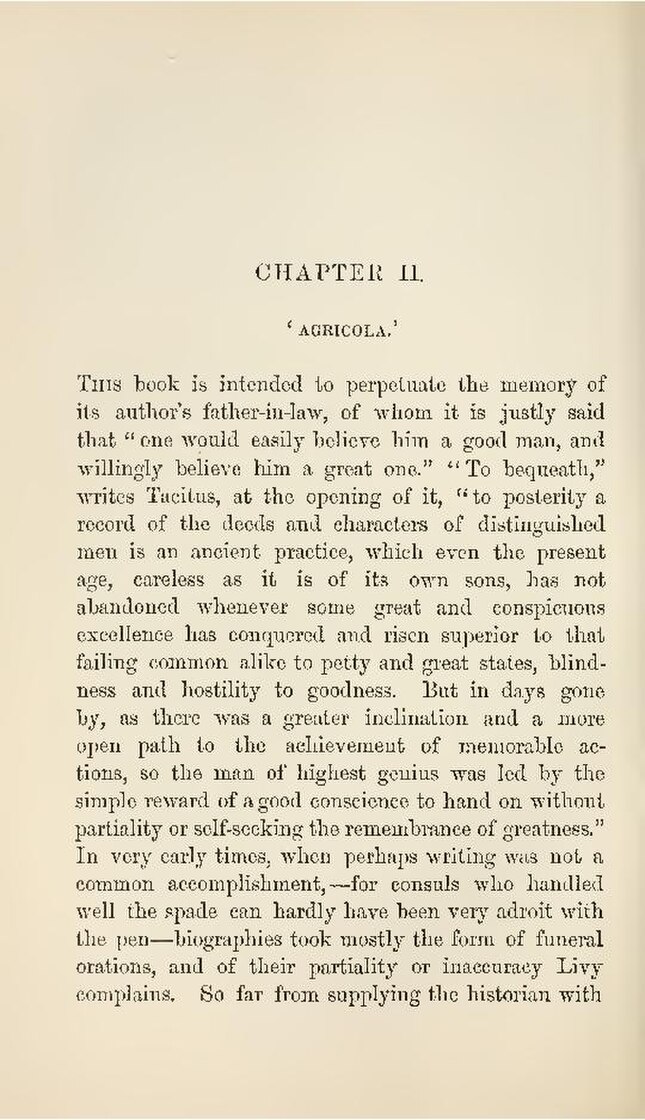CHAPTER II.
'AGRICOLA.'
This book is intended to perpetuate the memory of its author's father-in-law, of whom it is justly said that "one would easily believe him a good man, and willingly believe him a great one." "To bequeath," writes Tacitus, at the opening of it, "to posterity a record of the deeds and characters of distinguished men is an ancient practice, which even the present age, careless as it is of its own sons, has not abandoned whenever some great and conspicuous excellence has conquered and risen superior to that failing common alike to petty and great states, blindness and hostility to goodness. But in days gone by, as there was a greater inclination and a more open path to the achievement of memorable actions, so the man of highest genius was led by the simple reward of a good conscience to hand on without partiality or self-seeking the remembrance of greatness." In very early times, when perhaps writing was not a common accomplishment,—for consuls who handled well the spade can hardly have been very adroit with the pen—biographies took mostly the form of funeral orations, and of their partiality or inaccuracy Livy complains. So far from supplying the historian with
